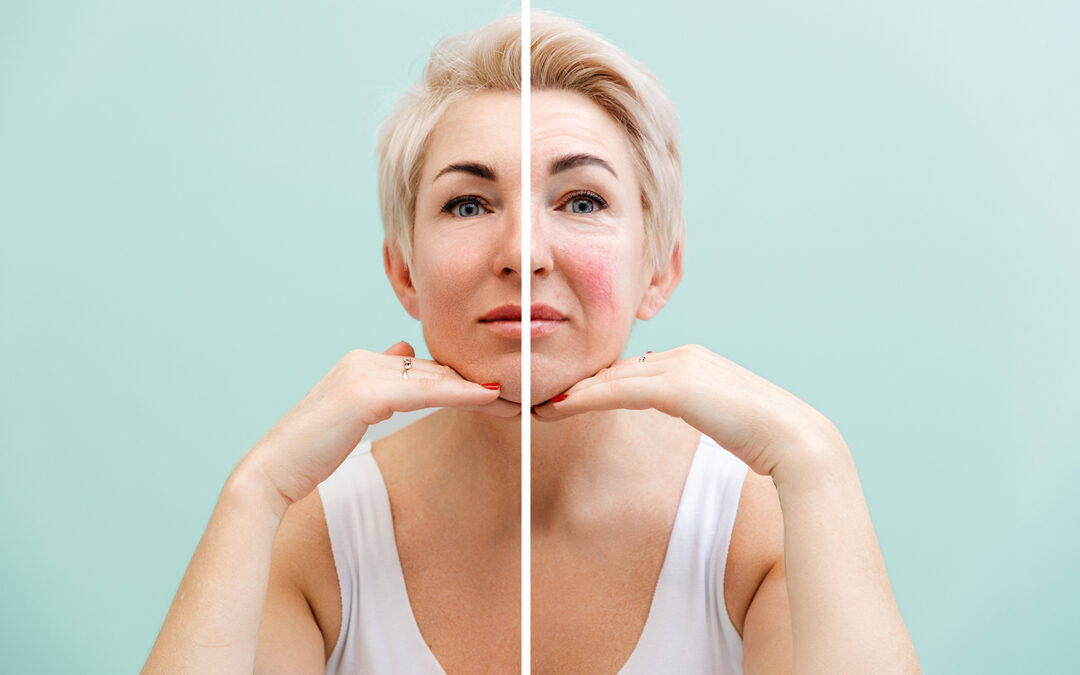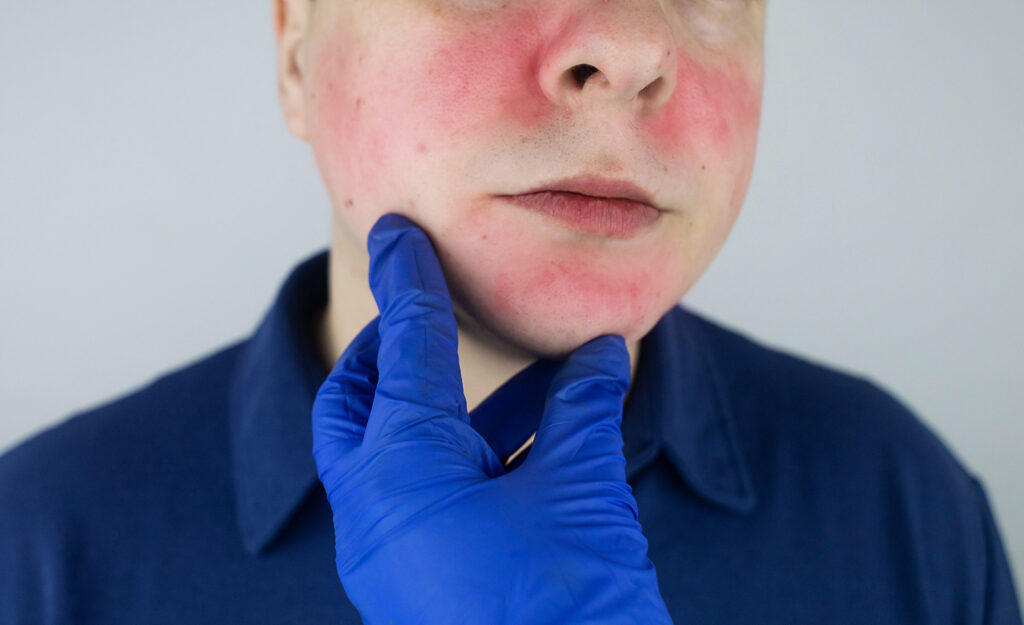What You Can do to Manage Rosacea
Managing rosacea involves identifying triggers that can cause flare-ups and using appropriate treatment to control symptoms. According to the National Rosacea Society, there are an estimated 16 million people in the United States who have rosacea, and while there is no known cure for the condition, it can be effectively managed with a combination of lifestyle changes and medication.
Studies have shown that up to 90% of people with rosacea experience an improvement in symptoms after treatment. It’s important to work closely with a dermatologist to develop a personalized treatment plan that considers the individual’s specific symptoms and triggers.
What is Rosacea?
Rosacea is a chronic inflammatory skin condition that primarily affects the face. It’s characterized by redness, flushing, and visible blood vessels, as well as bumps and pustules. While the exact cause of rosacea is unknown, it’s thought to be linked to genetics, environmental triggers, and an overactive immune system. There are several subtypes of rosacea, each with its own unique set of symptoms, and it’s important to get a proper diagnosis from a dermatologist in order to develop an effective treatment plan.
How to Manage Your Rosacea
Rosacea, like many other common and chronic skin conditions, can be managed. However, it’s important to ensure you understand your condition; with that knowledge comes the power to minimize the symptoms. We suggest a comprehensive strategy that starts with a professional.
Visit a dermatologist
If you suspect you have rosacea, it’s important to get a professional diagnosis from a dermatologist. They can help determine the type and severity of your rosacea and create a customized treatment plan.
Consider using prescription medication
Your dermatologist may prescribe medication to help manage your rosacea, such as topical creams or oral antibiotics. It’s important to follow their instructions and take the medication as prescribed.
Identify and avoid triggers
Many people with rosacea have specific triggers that can cause flare-ups, such as spicy foods, alcohol, and sun exposure. Keep track of what triggers your symptoms and avoid them as much as possible.
Be gentle with your skin
Rosacea-prone skin can be sensitive, so it’s important to be gentle when cleansing and moisturizing. Use mild, fragrance-free products, and avoid scrubbing your skin.
Protect your skin from the sun
Sun exposure can worsen rosacea symptoms, so it’s important to protect your skin with a broad-spectrum sunscreen with an SPF of 30 or higher. Wear a wide-brimmed hat and stay in the shade when possible.



Recent Comments